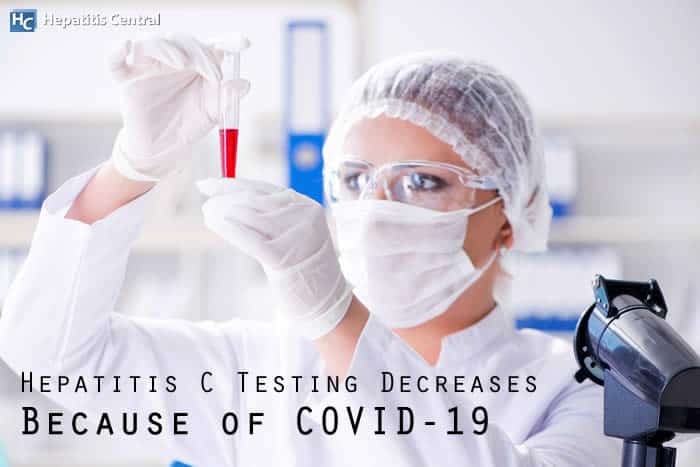Hepatitis C Testing Decreases Because of COVID-19


We’re coming up on almost a full year of dealing with the COVID-19 pandemic, and with that came changes to the entire healthcare system. Unfortunately, those changes impacted hepatitis C screening and identification according to research published in the Journal of Primary Care & Community Health. (1)
What Researchers Found
The team of researchers came from Boston Medical Center who had to make adjustments to their health care system due to COVID-19. The idea of the adjustments was to limit ambulatory in-person visits and preserve resources starting March 16, 2020.
The problem?
Hepatitis C testing wasn’t being performed routinely, which led investigators to find how impactful this healthcare restructuring was on said testing.
To understand the data, researchers compared patient data 3.5 months before and after March 16, 2020. The testing process for hepatitis C at Boston Medical Center includes utilizing reflex confirmatory testing for hepatitis C. When the antibodies are positive, it’s sent for RNA and genotype testing. Typically, these screens take place in the emergency room or their ambulatory clinics which aligned with guidelines in place by the United States Preventive Services Task Force (USPSTF) and US Centers for Disease Control and Prevention (CDC).
Once March 16 came about and preservation of resources started, antibody testing and RNA identification decreased both hospital-wide and in ambulatory clinics. (1)
The Data

When it came to data, here is what the researchers found: (1)
- Mean hospital-wide tests before and after policy changes included a 22.9 decrease in daily tests and a mean decrease of 0.36 hepatitis C positive patients identified in the hospital.
- Mean daily hepatitis C tests before and after the restructuring on March 16th in ambulatory sites decreased by 22.1 daily tests and hepatitis C positive patients identified decreased by a mean of 1.40 patients per day.
- Compared to 3.5 months before the March 16th restructuring, the 3.5 months after showed a 49.6% decrease in hepatitis C antibody testing along with a decrease of 42.1% of new hepatitis C positive patients identified.
- 3.5 months before and after the preservation of resources policy went into place, ambulatory clinics saw a decrease of 71.9% hepatitis C antibody testing and a decrease of 63.3% when it came to new hepatitis C diagnosis.
The fact that hepatitis C diagnoses were decreasing during the pandemic raised red flags since individuals can be infected with no awareness. Hepatitis C is a transferable infection that can impact a large population if it’s not detected and treated.
How to Combat This
Thankfully, technology has evolved and allows us to attend a doctor’s appointment from the comfort of our own homes. Heather Sperring, MS, a data quality specialist in the Center for Infectious Diseases and Public Health Programs at Boston Medical Center and corresponding author on this study told Science Daily (2), “nontraditional methods of preventive healthcare delivery need to be used in order to prevent the detrimental long-term effects of these gaps in patient care.”
She also added, “this includes proactive efforts aimed at increasing preventive care and screening, and interventions that reduce health risks, decrease avoidable emergency room visits, and minimize the time necessary for patients to be in the hospital.”
Investigators of the research recommend individuals stay up to date with their preventative care by utilizing telehealth visits. Combine this with rapid in and out lab and vaccination visits to ensure you’re not missing important health visits. Not only will this halt the decrease in hepatitis C screening and treatment, but it will also prevent delayed diagnosis of other chronic conditions, such as cancer.
- Hepatitis C Screening and Identification Drops in Wake of COVID-19 Pandemic. (n.d.). Retrieved January 12, 2021, from https://www.hcplive.com/view/hepatitis-c-covid-19-pandemic
- COVID-19 pandemic responsible for decrease in hepatitis C testing. (2020, December 04). Retrieved January 12, 2021, from https://www.sciencedaily.com/releases/2020/12/201204131312.htm







